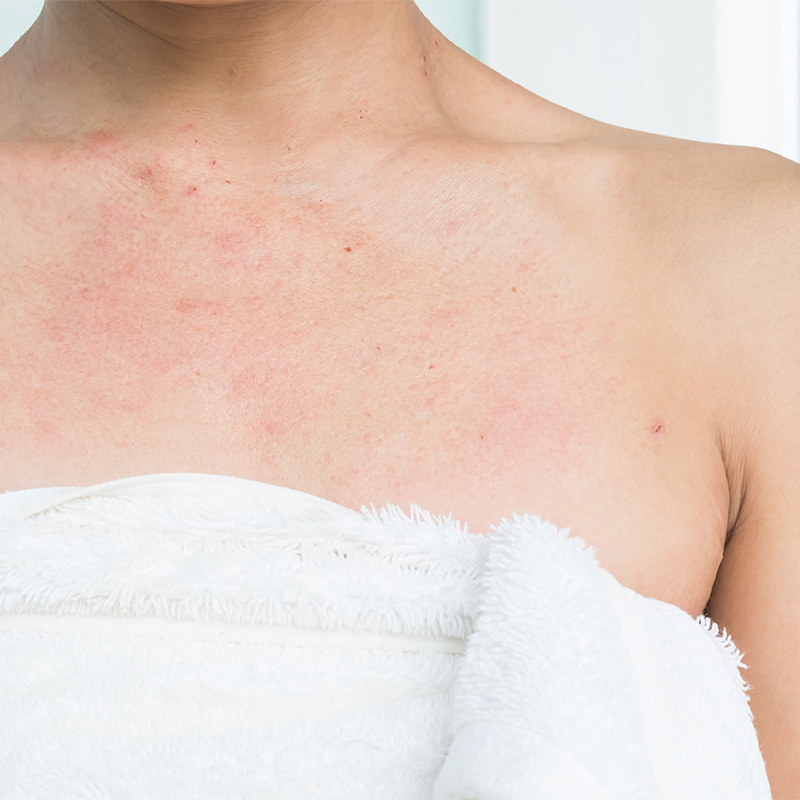Dry skin around the mouth can be caused by a type of dermatitis called perioral dermatitis. This condition causes red rash around the mouth with inflamed red bumps and a flaky skin. The rash can cause itching or burning sensations. This type of dermatitis is often mistaken for acne. The exact cause of perioral dermatitis is unknown, but it may be caused by a type of bacteria.
There are different versions of perioral dermatitis. Granulomatous perioral dermatitis is one of the versions showing yellowish bumps instead of red ones.
Perioral dermatitis can affect anyone, but children are more prone to granulomatous dermatitis than adults. Also, women between 25 and 45 using topical steroids and face creams are more likely to develop the condition.
Noncontagious, perioral dermatitis cannot be spread to another person, but it can spread up to other parts of the body like the nose and cause dry skin around the nose.
Most cases of perioral dermatitis resolve with treatment and the interruption of any products responsible for the appearance of the symptoms like face creams, cosmetics, sunscreen. It may take weeks or months for the symptoms to go away.













